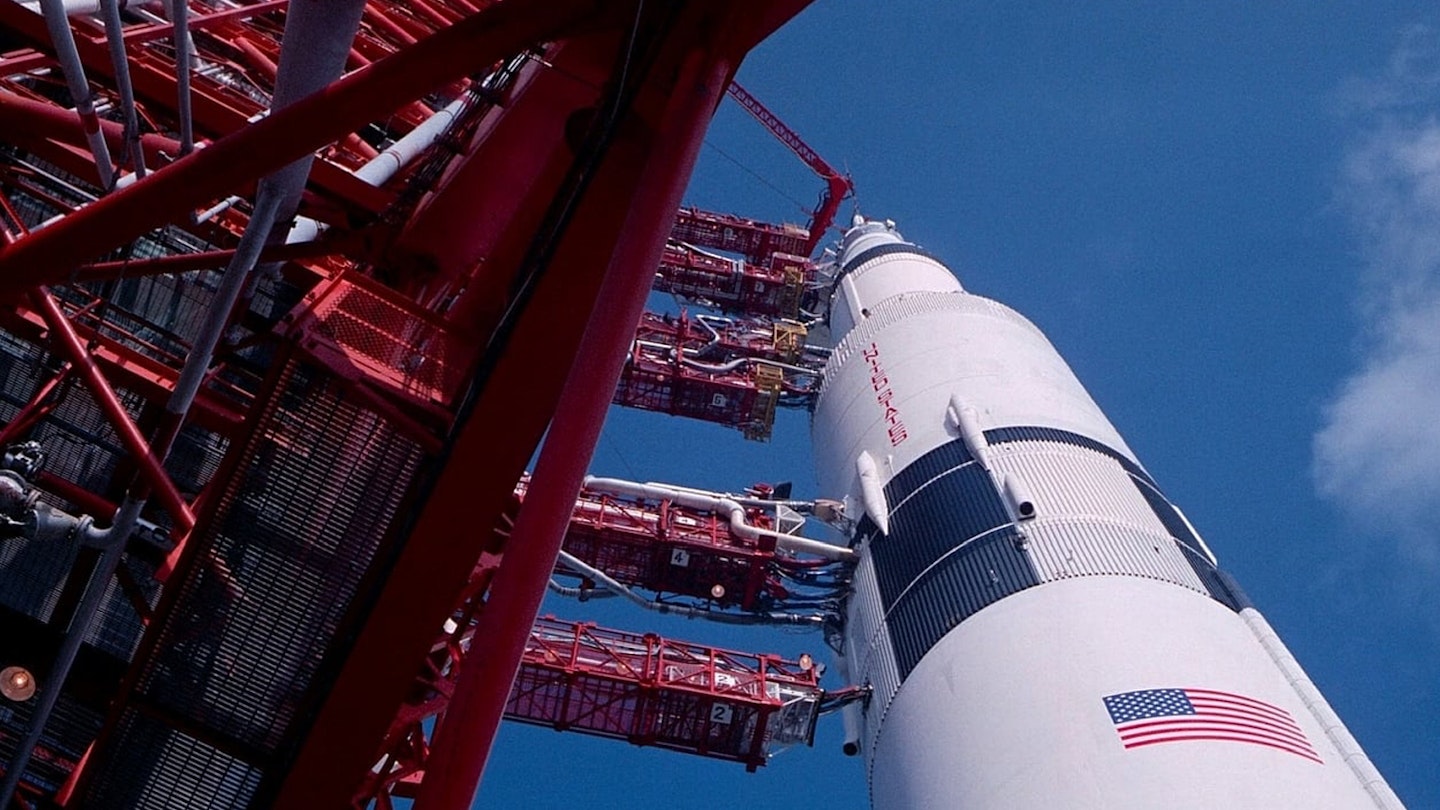Apollo 11 should be compulsory viewing for the wackadoodles who think that Danny Torrance’s rocket ship jumper in The Shining is proof positive that Stanley Kubrick faked the moon landings. Drawn from thousands of hours of never-seen-before 65mm film shot fly-on-the-wall style, telling the Apollo 11 mission story from sunrise on launch day to splashdown, Todd Douglas Miller’s enthralling film is as engaging and gripping as any Tom Hanks-produced documentary or Damien Chazelle drama. “Experiential” and “immersive” are worn-out words, but Apollo 11 puts you right back to five world-changing days in July 1969.
The footage is so pristine it could pass as a contemporary reconstruction, but this is only one tool in Miller’s space locker. From its sly use of the late ’60s Universal logo, everything about Apollo 11 is thoughtful. Miller’s M.O. eschews talking heads from the major players or historical experts and doesn’t impose a Voice-Of-God commentary. Instead, he assumes the audience is intelligent enough to have at least a passing knowledge of the events, and lets the images play out for themselves; the apocalyptic lift-off; the cold, grey surface of the moon; the lunar module docking with the command service module (or CSM — the film has more three-word initials than Line Of Duty); the heart-stopping, 17-second black-out on re-entry. The sound comes from original news broadcasts — anchor Walter Cronkite is gravitas embodied — and Mission Control tapes augmented by Matt Morton’s hypnotic score and Eric Milano’s complementary sound design. The film doesn’t pretend to provide in-depth analysis of the three astronauts or proffer what they were thinking. The story arc does not surprise (how can it?), but the filmmaking works wonders to throw the ending in doubt.
Time and again it reminds you of your favourite NASA movies. There’s an intimate, tactile quality that smacks of First Man. Shots of chain-smoking, bespectacled technicians with buzzcuts call to mind Apollo 13, illuminating that this was a team effort. It has epic scale — the first shot of the rocket, moved along on giant tracks to the launch pad, is Star Wars-ian in its impact as opener — combined with smaller human moments. The backstories of Armstrong, Aldrin and Collins are sketched with a montage of photos from life’s landmarks — birthdays, graduations, weddings — that are more moving without context. Equally affecting is footage of people tail-gating in car parks waiting to catch a witness to the previously unthinkable. It’s a crowd of curious Americans, and there is something touching about the no-holds-barred optimism on show. Apollo 11 is a film that celebrates old-school US values that feel anachronistic in today’s turbulent Trump era: science, ingenuity, expertise, imagination and hope. In that sense, it couldn’t be more welcome.


